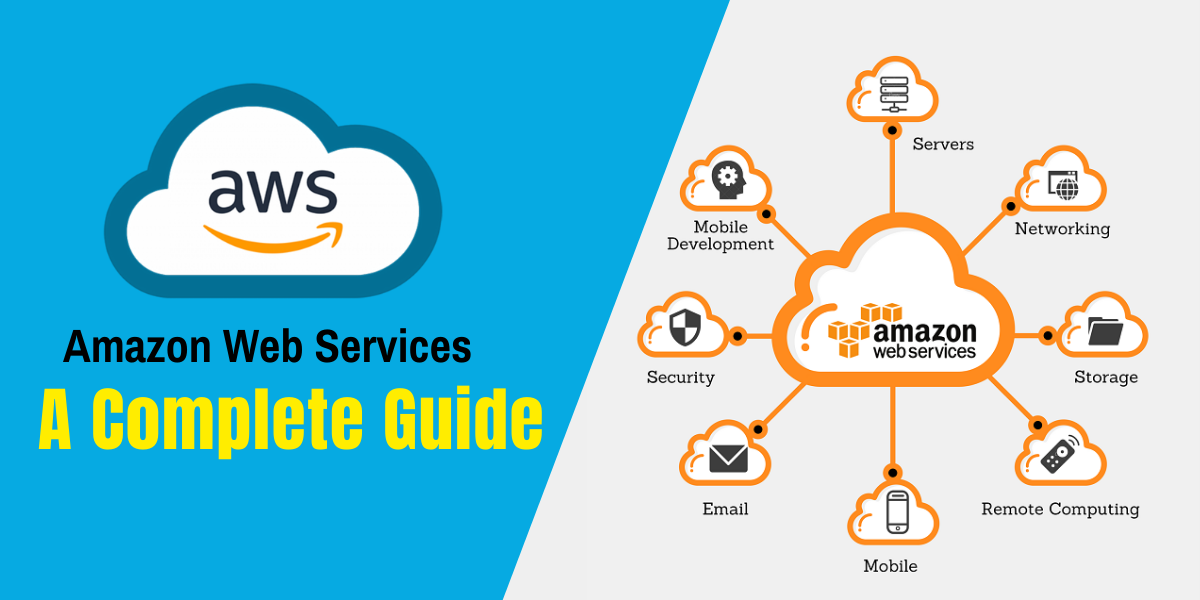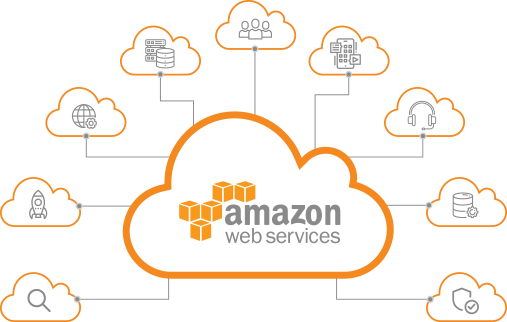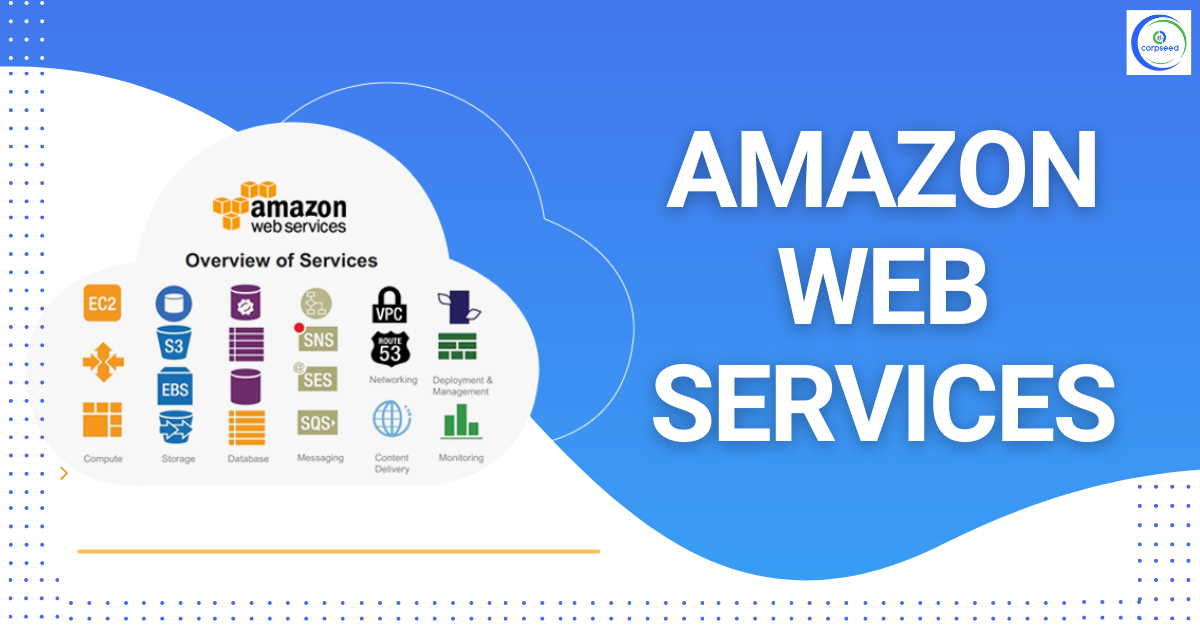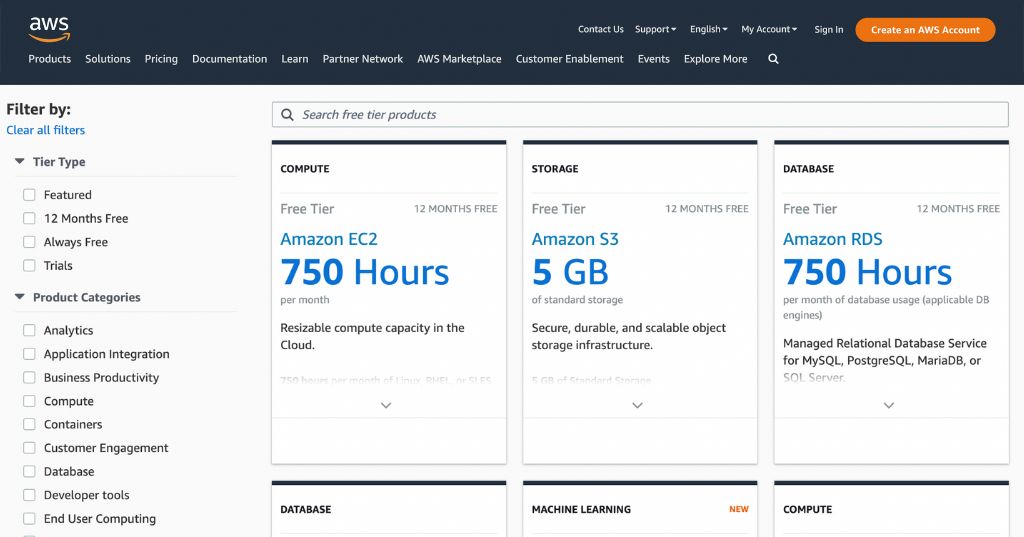In today’s rapidly evolving digital landscape, businesses are constantly seeking IT solutions that offer scalability, cost-effectiveness, security, flexibility, and a global reach. Amazon Web Services (AWS) has emerged as a leading cloud computing platform, designed to meet these very demands. Tailored for IT professionals who are navigating the complexities of cloud infrastructure, AWS web services provide a robust foundation for building, deploying, and managing applications and systems on the cloud. This article will explore the key benefits of AWS web services and how they stand out as a preferred choice for businesses across the globe.
Toc
Introduction of Amazon Web Services (AWS)

Amazon Web Services (AWS), a subsidiary of Amazon, is a comprehensive suite of cloud computing services that offer on-demand infrastructure and platform resources. It provides businesses of all sizes with a scalable and cost-effective way to build, deploy, and manage their applications online.
Who Stands to Benefit from AWS?
- Startups and Small Enterprises: The scalability and cost-efficiency of AWS make it ideal for startups and small businesses aiming to launch and expand their digital applications.
- Large Corporations: Enterprises can utilize AWS for comprehensive data analytics, machine learning projects, and the deployment of critical infrastructure.
- Web Development Firms: AWS offers a suite of tools and services designed to streamline the development, deployment, and management of web applications.
- Data Analysis Teams: Teams focused on data science can employ AWS’s tools for big data and machine learning to conduct in-depth analyses, model training, and derive significant insights.
How AWS works?
AWS operates on a cloud computing model, which essentially allows users to rent virtual computers on which they can run their own computer applications. This eliminates the need for businesses to invest heavily in physical hardware and manage extensive data centers. Instead, they can access computing power, storage, and other IT resources through the internet on a pay-as-you-go basis. AWS’s global network of secure data centers ensures high availability, redundancy, and scalability, facilitating a seamless and efficient operational flow. With AWS, businesses have the flexibility to choose the specific services that best meet their needs, easily adjust their resource consumption according to demand, and significantly reduce costs by paying only for what they use.
Core AWS Services

AWS provides an expansive suite of services catering to a wide range of needs across the cloud computing spectrum, ensuring comprehensive solutions for every IT requirement. Among the plethora of services AWS offers, the following are the most extensively utilized:
Compute
AWS presents a broad selection of compute solutions designed to meet the diverse needs and workloads of various applications. This range includes powerful virtual machines (EC2) for scalable computing on demand, serverless containers (Fargate) that eliminate the need to manage servers or clusters, and fully managed Kubernetes services (EKS) for those who prefer using container orchestration. This variety allows customers to pinpoint the exact compute solution that aligns with their application requirements, optimizing both performance and cost.
Storage
On the storage front, AWS provides a versatile array of options designed to accommodate all types of data. Whether it’s object storage (S3) for easily storing and retrieving unstructured data like images and videos, block storage (EBS) for persistent storage needs of virtual machines, or file storage (EFS) that offers shared file access across multiple EC2 instances, AWS ensures that clients have access to secure, durable, and highly-available storage solutions.
Networking
AWS’s global networking infrastructure is built for scale, performance, and security. It allows customers to create their own isolated network within the AWS cloud (VPCs), offering the flexibility to launch AWS resources in a virtual network that they define. This includes setting up subnets, route tables, and network gateways to build a tailored network architecture. With advanced security features, customers can implement custom security policies, ensuring their network’s integrity and resilience against threats.
Database
AWS’s database services cater to a wide variety of data models and application requirements, offering managed relational databases (Amazon RDS) for traditional database applications, NoSQL databases (DynamoDB) for flexible, scalable applications, and data warehouses (Amazon Redshift) for analyzing large datasets. These services reduce the administrative burden of database management, allowing clients to focus on innovation and application development.
Analytics
For businesses looking to derive actionable insights from their data, AWS offers powerful analytics services. These include Amazon Kinesis for processing and analyzing real-time data streams, Amazon EMR for big data processing, and Amazon QuickSight for creating and publishing interactive BI dashboards. Through these tools, AWS empowers clients to harness the full potential of their data, revealing trends and unlocking opportunities.
Machine Learning (ML)
AWS democratizes machine learning with its comprehensive suite of ML services and tools. Services like Amazon SageMaker simplify the process of building, training, and deploying machine learning models, while Amazon Rekognition makes it easy to add image and video analysis to applications. These capabilities are designed to be accessible even to those with limited machine learning expertise, accelerating innovation and enhancing application intelligence.

Security
Security is a paramount concern for AWS, evidenced by its extensive array of security services and features designed to protect data and applications. This includes data encryption, sophisticated access controls, and a full suite of identity and access management (IAM) tools. AWS is committed to providing the tools necessary to maintain security posture, comply with regulatory requirements, and ensure customer trust.
Management Tools
To assist clients in efficiently monitoring and managing their applications and infrastructure, AWS offers a range of management tools. CloudWatch provides detailed monitoring and observability of AWS resources and applications, allowing for real-time tracking of logs, metrics, and events. CloudTrail enhances governance, compliance, and operational and risk auditing of your AWS account by tracking API calls and other activities across AWS services. Together, these tools offer deep insights into application and infrastructure performance, helping identify and resolve potential issues swiftly.
Through its vast array of services and tools, AWS not only supports the full spectrum of cloud computing needs but also drives innovation, scalability, and efficiency across industries.
Advantages of Utilizing AWS

- Scalability and Flexibility: AWS allows for the dynamic scaling of resources to meet changing demands efficiently. Costs are optimized as payment is based on resource consumption, enhancing cost-effectiveness.
- Security: AWS places a high priority on security, offering advanced features and compliance certifications to ensure the protection of data and applications.
- Reliability: With its global infrastructure, AWS provides high availability and fault tolerance, guaranteeing consistent operational uptime for applications.
- Comprehensive Service Range: AWS provides an extensive selection of services, positioning it as a comprehensive solution for cloud computing requirements.
- Pay-As-You-Go Pricing Model: This pricing strategy ensures that expenses are directly aligned with resource usage.
- Continuous Innovation: AWS is at the forefront of innovation, regularly introducing new features and services to provide access to the latest in cloud technology.
1. Unmatched Scalability
One of the standout features of AWS web services is its scalability. IT professionals can attest to the challenge of predicting demand for IT resources. AWS addresses this by allowing businesses to easily scale up or down based on real-time requirements. This dynamic scalability ensures that applications perform optimally under any load, eliminating the risks of downtime or performance bottlenecks. Whether you’re handling a spike in website traffic or launching new services, AWS provides the flexibility to adjust resources instantly.
2. Cost-Effectiveness
Budget constraints often limit IT projects and initiatives. AWS presents a cost-effective solution by adopting a pay-as-you-go pricing model. This means businesses only pay for the compute, storage, and other resources they actually use, without the need for long-term contracts or upfront investment. Such a model can lead to significant savings, especially for startups and small-to-medium-sized businesses that can benefit from the same powerful IT infrastructure as larger enterprises, but without the hefty price tag.
3. Enhanced Security
Security is a top concern for every IT professional. AWS web services are built with a deep commitment to security, providing features that help safeguard your applications and data. This includes a comprehensive set of compliance and governance tools that ensure your cloud environment meets industry standards. With AWS, you can configure firewall settings, manage encryption, and monitor your systems for potential threats—all within a secure and compliant infrastructure.
4. Flexibility and Customization
The one-size-fits-all approach doesn’t apply to IT solutions. AWS stands out for its extensive portfolio of services, which cater to diverse business needs. From computing power, storage options, and databases to machine learning, analytics, and IoT, AWS offers a wide range of services that can be mixed and matched to create customized solutions. This degree of flexibility empowers IT professionals with the tools to innovate and adapt to changing market demands.
5. Global Reach
Expanding your business globally requires a reliable IT infrastructure that can serve users around the world with low latency. AWS’s expansive network of data centers across different geographic regions ensures your applications are always accessible and responsive, no matter where your users are located. This global reach is a critical advantage for businesses looking to enhance their international presence. With AWS, you can leverage the power of the cloud to reach new markets and customers without worrying about infrastructure limitations.
How to start with AWS

Starting with AWS is a straightforward process that can significantly enhance your organization’s IT capabilities.
Step by step to start with AWS
Introductory Offer: AWS’s introductory tier allows new users to explore a wide range of services at no cost for a specified period, offering an excellent opportunity to familiarize oneself with the platform prior to adopting a paid subscription.
Documentation and Resources: AWS offers an extensive collection of documentation, tutorials, and training materials to assist in the utilization of their services, available at: https://docs.aws.amazon.com
Permanently Free Services: AWS includes services that are permanently free within certain usage limits, facilitating the exploration of functionalities without financial commitment.
Evaluating AWS for Your Requirements
To ascertain whether AWS meets your cloud computing requirements, consider the following factors:
- Existing Infrastructure Compatibility: If your organization is already embedded within the Amazon ecosystem, leveraging various products and services, AWS stands out by offering seamless integration capabilities. This ensures that transitioning or expanding your cloud infrastructure can be done with minimal disruption.
- Scalability Requirements: For businesses experiencing fluctuating application usage or those with growing data storage demands, AWS presents a range of scalable solutions. These options allow for dynamic adjustment according to your current needs, ensuring that you can efficiently handle peak loads without over-investing in resources.
- Security Considerations: Understanding the paramount importance of protecting your data and applications, AWS equips you with comprehensive security capabilities. This includes a wide array of tools and features designed to fortify your enterprise’s defenses against the evolving threat landscape, thereby aligning with stringent security requirements.
- Financial Considerations: Navigating cloud services pricing can be challenging, but AWS endeavors to simplify this with a transparent pricing model alongside free tier options. Before committing, it’s beneficial to thoroughly review these aspects to ascertain how they align with your financial constraints and objectives, ensuring that AWS is a cost-effective solution for your organization.
Case Study: Implementing AWS for Seamless Scalability and Cost Efficiency

Background: A mid-sized e-commerce platform, facing rapid growth, struggled with its existing on-premises IT infrastructure. The platform experienced frequent downtime during traffic spikes, particularly during sales events, leading to customer dissatisfaction and potential revenue loss. Additionally, the fixed costs associated with maintaining and upgrading their infrastructure were substantial, impacting their bottom line.
Challenge: The e-commerce platform needed a solution that could not only handle the increasing traffic without interruptions but also offer a more cost-effective model for managing IT resources. The goals were clear: achieve scalability to manage peak loads efficiently and reduce operational costs without compromising on performance or security.
Solution: After evaluating several cloud services, the platform decided to migrate to AWS due to its robust scalability options, cost-effectiveness, and comprehensive security features. The migration process involved leveraging AWS’s Elastic Compute Cloud (EC2) for flexible computing capacity, Amazon Simple Storage Service (S3) for scalable storage, and Amazon CloudFront for fast content delivery. They also utilized AWS Auto Scaling to automatically adjust the capacity to maintain steady, predictable performance at the lowest possible cost.
Outcome: The migration to AWS transformed the e-commerce platform’s operations. They achieved:
- Improved Scalability: The platform could now effortlessly handle traffic spikes during sales events, with an auto-scaling feature that adjusted resources in real-time based on demand.
- Cost Reduction: Moving to a pay-as-you-go model resulted in significant savings, eliminating the need for upfront investments in hardware and reducing operational costs.
- Enhanced Customer Experience: The adoption of Amazon CloudFront ensured lower latency, faster page loads, and a seamless shopping experience for customers worldwide.
Reflection: This case study illustrates how AWS’s dynamic scalability and cost-effective cloud solutions empower businesses to manage growth challenges efficiently. By leveraging AWS, the e-commerce platform not only solved its immediate issues of scalability and cost but also positioned itself for future expansion in the global market.
Conclusion
For IT professionals tasked with navigating the complex requirements of modern IT infrastructure, AWS web services present a compelling solution. By offering scalability, cost-effectiveness, security, flexibility, and a global reach, AWS empowers businesses to build resilient and adaptive technology ecosystems. As the demand for robust and scalable IT solutions continues to grow, AWS web services remain at the forefront, helping organizations leverage the power of the cloud to achieve their business objectives.









